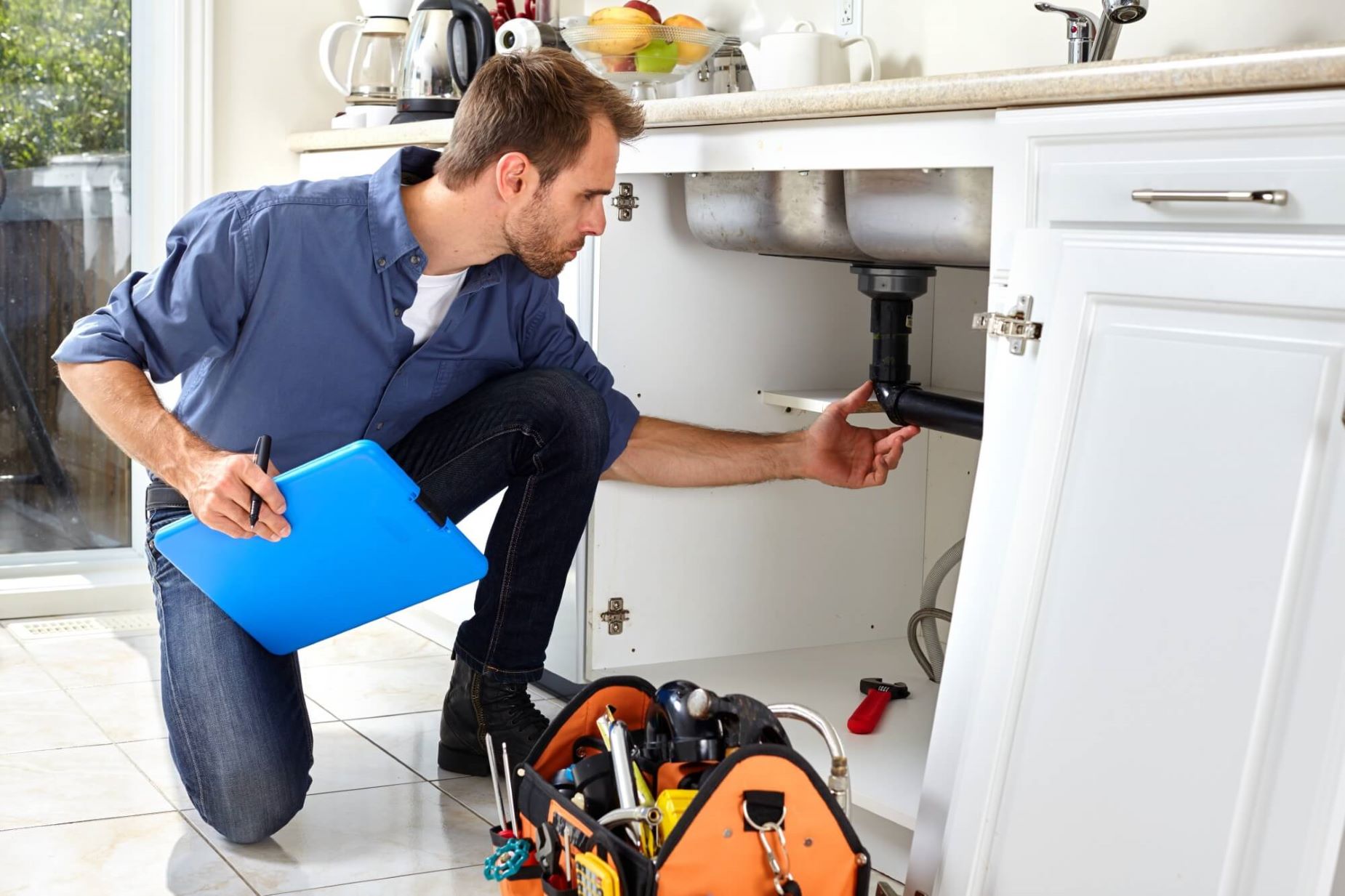
When it comes to keeping our homes and businesses running smoothly, plumbers play a crucial role. They fix leaks, unclog drains, install new plumbing systems, and ensure that our water supply is safe and functioning properly. Despite their importance, plumbers often go unnoticed until an emergency arises. But there is so much more to these skilled professionals than meets the eye.
In this article, we will take a closer look at plumbers and uncover 15 fascinating facts about their profession. From the history of plumbing to the qualifications required to become a plumber, you’ll discover some interesting and surprising information that will give you a new appreciation for these unsung heroes.
So, if you’ve ever wondered about the world of plumbing or just want to learn some fun facts, keep reading to broaden your knowledge and gain a deeper understanding of the workings behind those pipes in your home.
Key Takeaways:
- Plumbers are essential for public health and safety, ensuring clean water and addressing a wide range of plumbing issues. They are skilled problem-solvers who play a crucial role in our communities.
- Plumbers are like modern-day superheroes, equipped with specialized tools and knowledge to tackle plumbing emergencies, promote water conservation, and maintain our plumbing infrastructure. They are the unsung heroes behind the scenes.
The Ancient Romans were skilled plumbers.
Did you know that the ancient Romans were pioneers in plumbing technology? They developed an extensive network of aqueducts and plumbing systems to provide water to their cities. Their advanced engineering techniques laid the foundation for modern plumbing systems.
Plumbers play a vital role in public health.
Plumbers ensure that clean and safe water is available for our daily use. From installing and repairing pipes to maintaining drainage systems, they play a crucial role in preventing the spread of diseases caused by contaminated water.
Plumbing is one of the oldest professions.
For thousands of years, humans have relied on plumbers to maintain their sanitation systems. The profession has evolved over time, but the need for skilled plumbers has remained constant.
There are different types of plumbers.
Plumbers specialize in various areas, such as residential plumbing, commercial plumbing, industrial plumbing, and service plumbing. Each specialization requires different skills and expertise to handle specific plumbing needs.
Plumbers need to be licensed.
Before practicing professionally, plumbers undergo rigorous training and must obtain a license. This ensures that they have the necessary knowledge and skills to carry out their work safely and effectively.
Plumbers use specialized tools and equipment.
From wrenches and pipe cutters to hydro jets and drain cameras, plumbers rely on a wide range of tools to diagnose and fix plumbing issues. These tools help them navigate complex systems and provide efficient solutions.
Plumbers solve more than just leaks.
While fixing leaks is a common task, plumbers also address various plumbing issues like clogged drains, broken pipes, faulty water heaters, and sewage system problems. Their expertise allows them to tackle a wide range of problems.
Plumbing emergencies can occur at any time.
Plumbing problems can happen unexpectedly, and plumbers often provide 24/7 emergency services to address urgent issues. Whether it’s a burst pipe in the middle of the night or a malfunctioning water heater during a holiday, plumbers are available to assist
Proper plumbing can increase property value.
A well-maintained plumbing system is an attractive feature for potential homebuyers and can significantly impact a property’s value. Investing in plumbing upgrades and repairs can yield a higher return on investment.
Plumbers need problem-solving skills.
Plumbers often encounter complex plumbing issues that require analytical thinking and problem-solving abilities. They must be able to identify the root cause of a problem and devise effective solutions.
Plumbers promote water conservation.
With growing concerns about water scarcity, plumbers play a crucial role in promoting water conservation. They can install water-efficient fixtures, implement rainwater harvesting systems, and educate homeowners about water-saving practices.
Plumbers adhere to plumbing codes and regulations.
Plumbers follow strict codes and regulations set by local authorities to ensure that plumbing work meets safety and quality standards. Compliance with these guidelines is essential for maintaining the integrity of plumbing systems.
Plumbers can specialize in green plumbing.
Green plumbers focus on sustainable plumbing practices and promote environmentally-friendly solutions. They may install energy-efficient appliances, implement water reuse systems, and advise on eco-friendly plumbing options.
Continuous learning is crucial for plumbers.
Given the advancements in plumbing technology and industry standards, plumbers must stay updated with the latest techniques and regulations. Continuous learning through training programs and workshops is a vital part of their professional development.
Plumbers provide valuable advice to homeowners.
Beyond repairs and installations, plumbers offer guidance on maintaining plumbing systems, preventing future problems, and improving water efficiency. They can recommend water filtration systems, efficient fixtures, and helpful maintenance practices.
Conclusion
In conclusion, plumbers play a crucial role in our daily lives, ensuring that our homes and businesses have properly functioning plumbing systems. They possess a wide range of skills and expertise, ranging from fixing leaks and clogged drains to installing new plumbing fixtures and systems. Plumbers are highly trained professionals who are knowledgeable about different types of pipes, fittings, valves, and plumbing codes. They work diligently to solve plumbing issues efficiently and effectively.If you’re facing any plumbing problems, it’s essential to hire a licensed and experienced plumber who can provide reliable solutions. Regular maintenance and timely repairs can help prevent major plumbing disasters and save you money in the long run. Remember to research and choose the right plumber for your specific needs, and don’t hesitate to ask for references or testimonials.By understanding these 15 interesting facts about plumbers, you can gain a better appreciation for their vital role in maintaining the functionality and comfort of our homes and businesses. So next time you encounter a plumbing issue, be grateful for the skilled professionals who work behind the scenes to keep everything running smoothly.
FAQs
1. How do I find a reliable plumber?
It’s best to ask for recommendations from friends, family, or neighbors who have recently hired a plumber. You can also check online customer reviews and ratings to get an idea of their reputation.
2. What should I do in case of a plumbing emergency?
If you’re facing a plumbing emergency, it’s crucial to shut off the main water supply immediately and contact a professional plumber who offers emergency services. They will be able to assess the situation and provide prompt assistance.
3. How often should I schedule plumbing maintenance?
Regular plumbing maintenance is recommended at least once a year. This can help identify potential issues early on and prevent costly repairs down the line.
4. Are plumbers licensed and insured?
Yes, reputable plumbers are licensed and insured. This ensures that they have met the necessary requirements and provides protection for both the plumber and the client in case of any accidents or damages.
5. What should I do if I have a plumbing leak?
If you have a plumbing leak, it’s important to shut off the water supply to that area if possible and contact a plumber right away. They will be able to locate and repair the leak efficiently.
6. Can plumbers help with bathroom renovations?
Absolutely! Plumbers are an essential part of any bathroom renovation project. They can help with the installation of new fixtures, pipes, and drains, ensuring that everything is properly connected and functioning correctly.
7. How long does it take for a plumber to fix a clogged drain?
The time it takes to fix a clogged drain depends on the severity of the blockage. In most cases, a plumber can resolve the issue within a couple of hours.
Plumbers possess a wealth of knowledge and skills that keep our homes and businesses functioning smoothly. From their ancient roots to modern-day innovations, the plumbing profession continues to evolve and adapt to new challenges. If you're curious to learn more mind-blowing facts about plumbers, the best Mario facts, or enigmatic facts about the Super Mario Bros video game, keep exploring our website for even more fascinating insights into these topics.
Was this page helpful?
Our commitment to delivering trustworthy and engaging content is at the heart of what we do. Each fact on our site is contributed by real users like you, bringing a wealth of diverse insights and information. To ensure the highest standards of accuracy and reliability, our dedicated editors meticulously review each submission. This process guarantees that the facts we share are not only fascinating but also credible. Trust in our commitment to quality and authenticity as you explore and learn with us.


